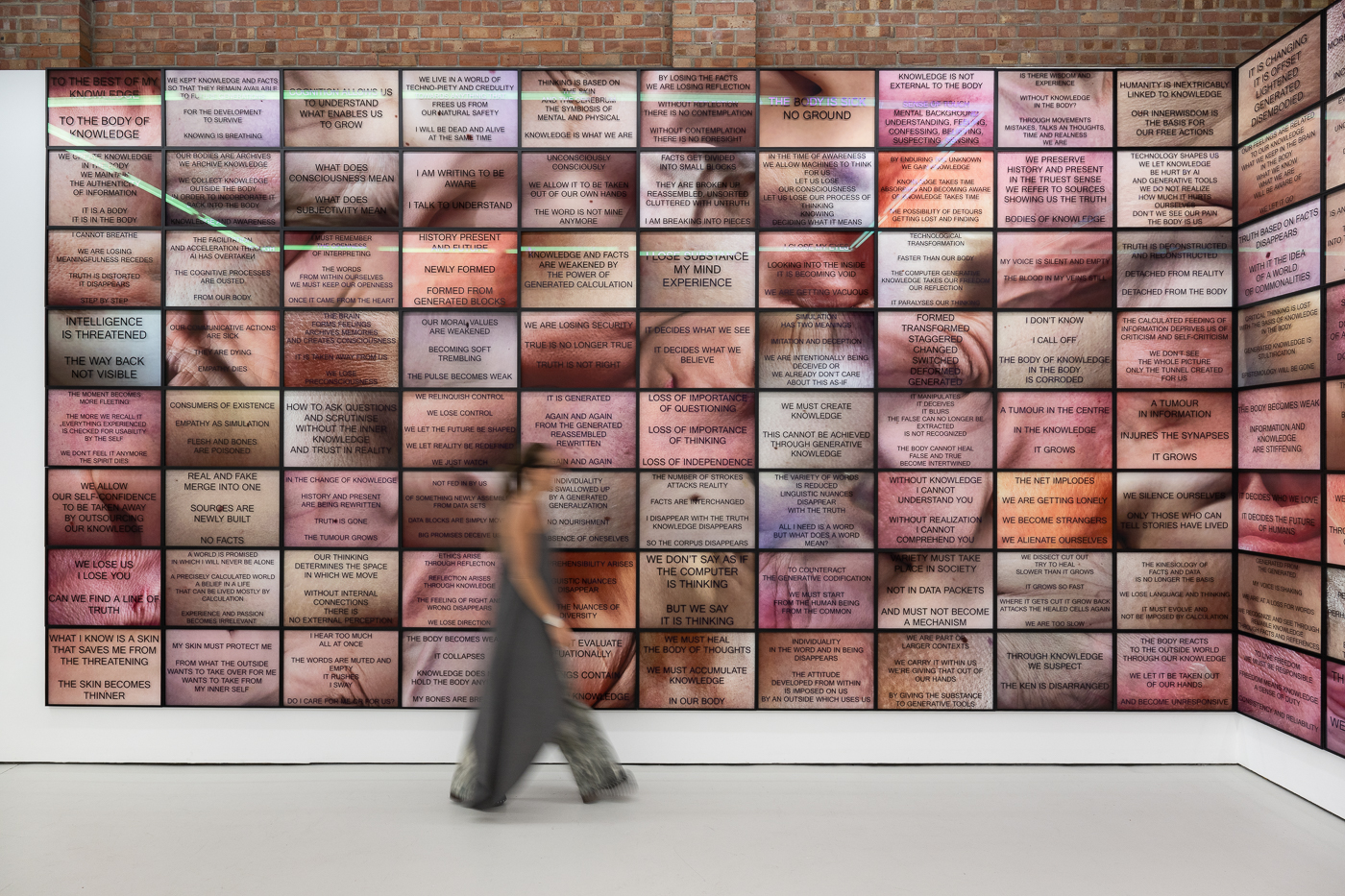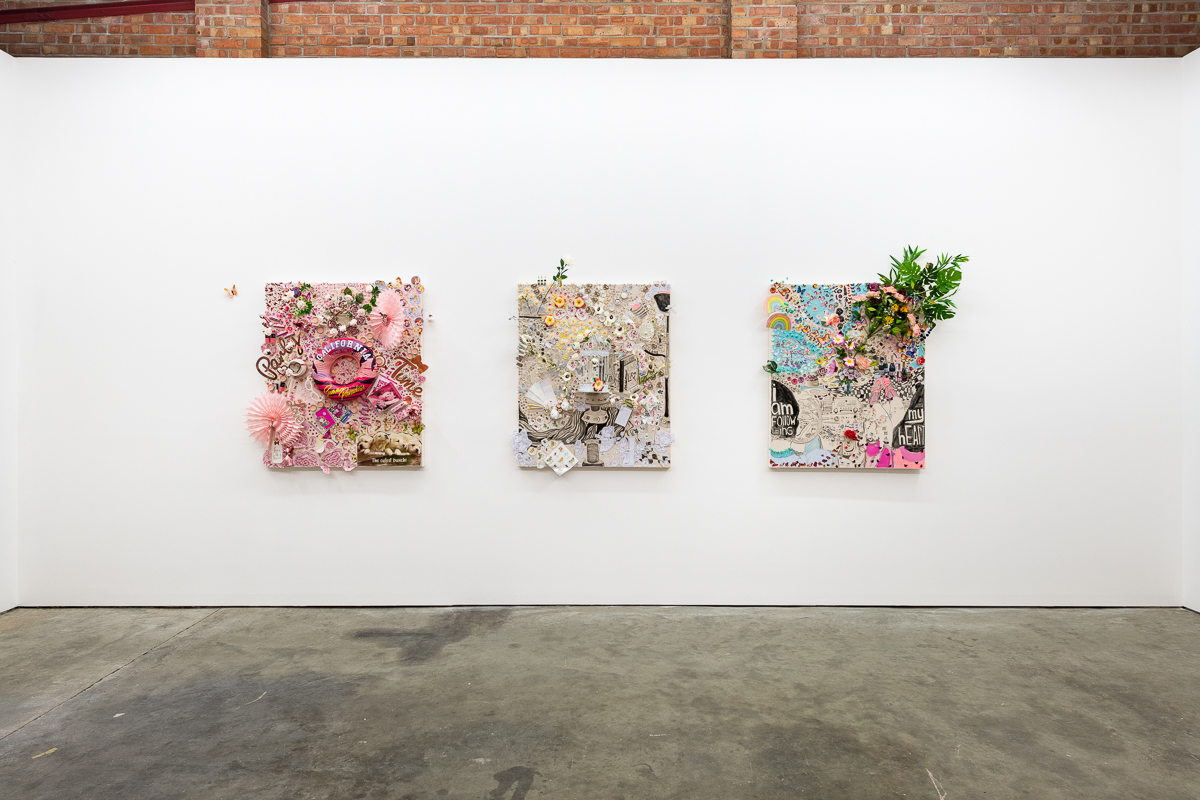VICE interviews Gretchen Andrew about human desire and manipulating Google.
This ‘Search Engine Artist’ Tricked Google Into Displaying Her Art
By Varsha Rani
If you’re reading this, chances are you have some sort of a relationship with Google. Most of us rely on the search engine to look for information instead of storing it on our own brains (which experts say is making us stupid), heading to it for searching, surfing and sometimes even contributing to the endless databases. I don’t know about you but life without the internet is unfathomable for me and my fellow Gen Z counterparts, making me think the Internet is our master than the other way round—no matter how much we might pretend to control our own choices.
But Gretchen isn’t having any of this BS.
The Los Angeles-based “search engine artist” who worked at the Google headquarters in Silicon Valley before pursuing a career as a full-time artist is in turn manipulating, tricking, undermining and basically making Google her bitch.
In late October, when the whole world was glued to their screens to follow the U.S. presidential drama that was unfolding like a reality show, a weird thing happened. For some time, if you’d search for the hot keywords “the next American president”, instead of Trump or Biden what would pop up were a series of paintings inspired by the aesthetics of vision boards to “manifest” the ideal leader—“a kind, democracy-respecting, loving person”. The collages would rank high up on the list, suddenly breaking the myth we all believe in when it comes to the powers of the internet.
Gretchen has pulled off such a stunt earlier as well when she made Google believe she’s won the Turner Prize—one of the best-known prizes for the visual arts but in a world tricked by Gretchen, actually a pancake “turning” competition.
We spoke to Gretchen about her work, how and why she tricks the internet, and what this means for the rest of us.
VICE: Looking up “the next American president” and getting to your messages was genius. How did this idea come into play, and how exactly did you do it?
Gretchen: I was really over people talking about foreign governments interfering in elections as if what enabled this was some sort of incomprehensible spy stuff and not the concentration of monopoly power by a handful of tech corporations. Manipulating the internet is not that hard. I wanted people to see that an artist like myself, someone without the traditional markers of power like political position, great sums of money, an army, etc., can play this game too. I think this is one of the reasons my work has resonated so strongly in places like India, where you have a highly trained and very skilled technical workforce that is often subjugated by the technology companies that employ it. Taking personal power back through technology is hugely important everywhere in the world.
I achieved this by using the concentration of power in technology against itself. I found loopholes in the way technology processes our lives, and forced Google and its artificial intelligence to fail because technology cannot parse desire. Wanting something and admitting to that desire is still the most powerful tool on earth.
Exposing the internet’s shortcomings and the ability to kinda easily hack your way through is great, but where do your personal motivations with these acts lie? Is there a bit of a power trip involved in this too?
The educational and activist implications of my work are important to me but ultimately my practice is about achieving the life and career I want and doing it in a way that requires no permission or access from anyone. I only need to say yes to myself. The vision boards themselves are also very personal. They are about the life I want, the future I want, the material possessions and shiny things I want, the love I want. They are covered in symbols of universal celebration and desire, but also in very personal symbols.
You talk a lot about “Internet imperialism”. What is this, who does this impact, and what change do you seek by overthrowing it in your own way?
Internet Imperialism is a term I invented to acknowledge the dark implications of my work and the way my methods are and have been used in history for much more sinister aims. My internet manipulations are global. They impact everyone. They impact the way AI is being educated. I seek to change my own life and also inspire others to take power and control from systems they were not designed to benefit the “user.”
So, how do we go about hacking the system and get a little bit of control over big tech in our hands?
My particular form of revolution is not to overthrow the system but to use it in unexpected ways. The rules that have been set up by algorithms, by technology companies, and by society more broadly are not made to benefit everyone equally, but they can also be used against their creators. Everything I do is totally legal and totally within terms of service, the key is to identify where technology fails in a way that can benefit your own life and power. Failure always brings opportunity and the internet is no different. I look at the gap between the “letter” and “spirit” of each rule and find a way to make it work for me. I am teaching a workshop soon at Arebyte.
What is the one startling thing about the internet that you realised as you made your way through it, bending its rules and making SEO your own?
Not only can technology not parse human desire but human desire is stronger than any technology. Everything relates back to language. Language is powerful but even human-to-human misunderstandings are frequent. It is the core problem of post-structuralism. This is where art comes from. Art can do more, communicate more, than language and technology.
What’s up next?
In Feb 2021, I’ll have my first exhibition with Annka Kultys in London and will be taking on Brexit and formal education.


